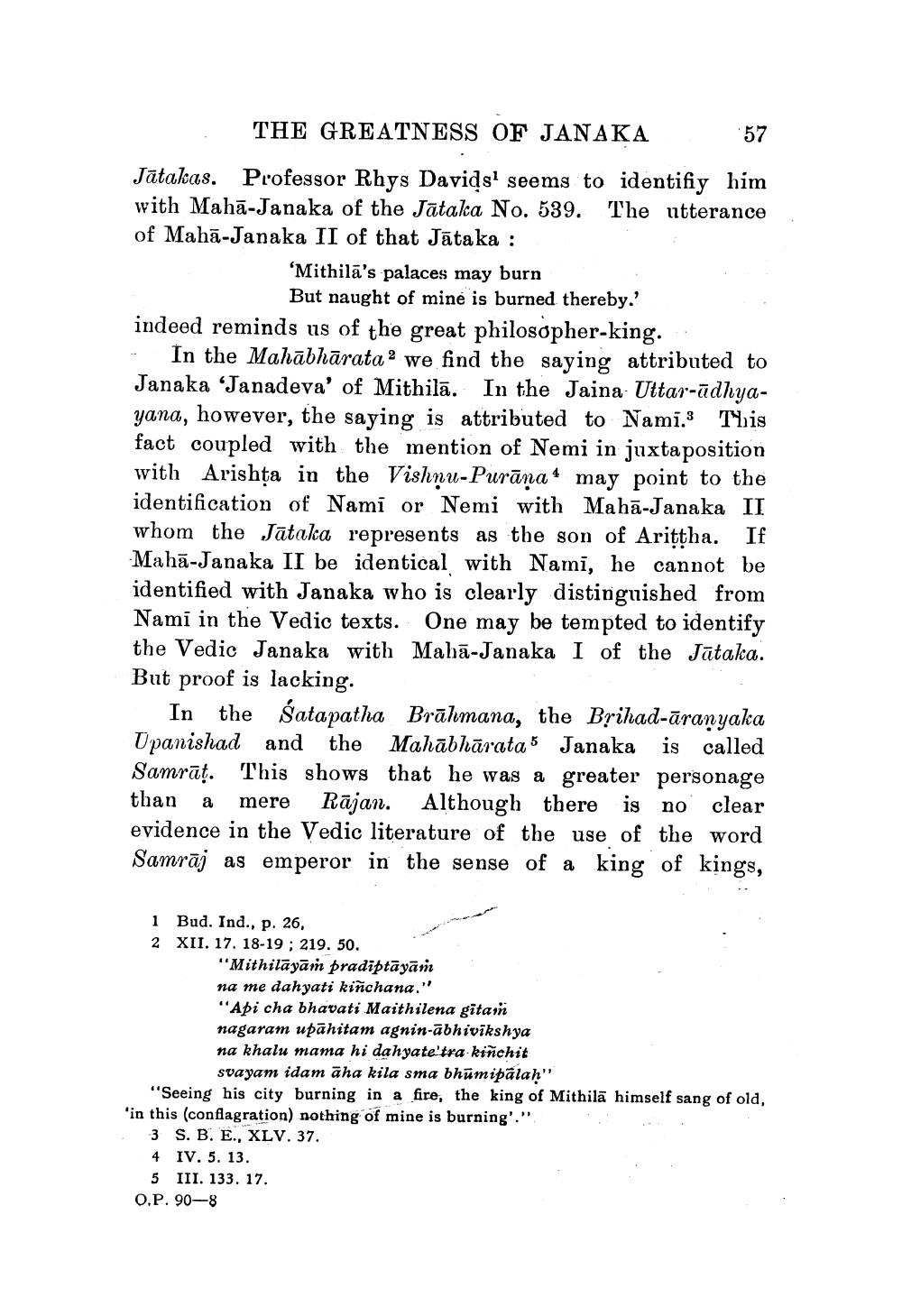________________
THE GREATNESS OF JANAKA 57 Jātakas. Professor Rhys Davids' seems to identifiy him with Mahā-Janaka of the Jātaka No. 539. The utterance of Mahā-Janaka II of that Jātaka :
‘Mithila's palaces may burn
But naught of mine is burned thereby.? indeed reminds us of the great philosopher-king. - In the Mahābhārata2 we find the saying attributed to Janaka ‘Janadeva' of Mithilā. In the Jaina Uttar-ūdhyayana, however, the saying is attributed to Nami. This fact coupled with the mention of Nemi in juxtaposition with Arishţa in the Vishnu-Purānao may point to the identification of Nami or Nemi with Mahā-Janaka II whom the Jātaka represents as the son of Arittha. If Mahā-Janaka II be identical with Nami, he cannot be identified with Janaka who is clearly distinguished from Nami in the Vedic texts. One may be tempted to identify the Vedic Janaka with Mahā-Janaka I of the Jātaka. But proof is lacking.
In the Satapatha Brāhmana, the Brihad-āranyaka Upanishad and the Mahābhārata 5 Janaka is called Samrāt. This shows that he was a greater personage than a mere Rājan. Although there is no clear evidence in the Vedic literature of the use of the word Samrāj as emperor in the sense of a king of kings,
1 Bud. Ind., p. 26, 2 XII. 17. 18-19; 219. 50.
"Mithilayām pradiptāyām na me dahyati kiñchana." "Api cha bhavati Maithilena gitam nagaram upāhitam agnin-ābhivīkshya na khalu mama hi dahyate'tra-kiñchit
svayam idam āha kila sma bhumipälah" “Seeing his city burning in a fire, the king of Mithilā himself sang of old, 'in this (conflagration) nothing of mine is burning'."
3 S. B. E., XLV. 37. 4 IV. 5. 13.
5 III. 133. 17. O.P. 90–8




